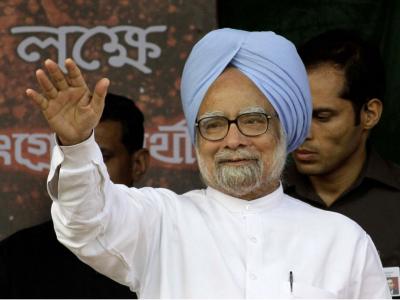Manmohan Singh Passes Away: 5 Historical Reforms and Welfare Policies by the Former Prime Minister
By Lokmat English Desk | Updated: December 27, 2024 12:34 IST2024-12-27T12:33:54+5:302024-12-27T12:34:40+5:30
Former Prime Minister and renowned economist, Manmohan Singh, widely regarded as the architect of the country’s economic reforms, passed ...

Manmohan Singh Passes Away: 5 Historical Reforms and Welfare Policies by the Former Prime Minister
Former Prime Minister and renowned economist, Manmohan Singh, widely regarded as the architect of the country’s economic reforms, passed away at the age of 92. His death has sent shockwaves across the nation. Singh, who played a pivotal role in implementing historic economic reforms during his tenure, leaves behind a legacy that has significantly shaped India's economic landscape.
Here are 5 historical reforms and welfare policies introduced by Former Prime Minister Manmohan Singh:
- The Right to Education Act (2009), introduced by Singh's government, granted every child between the ages of 6 and 14 the right to free and compulsory education. This landmark legislation marked a significant step in ensuring that children across the country receive their fundamental right to education.
- The Right to Information Act (2005), introduced under Singh's leadership, empowered every Indian citizen with the right to access government information. This landmark legislation played a crucial role in promoting transparency and accountability within the government.
- The National Food Security Act (2013), introduced during Singh's tenure, ensured that two-thirds of the households in the country had access to affordable food items. This landmark legislation proved to be a lifeline for families living below the poverty line, providing them with much-needed food security.
- The Land Acquisition Act (2013), enacted during Singh's government, ensured that individuals displaced by development projects received fair compensation for their land. This law aimed to protect the rights of affected communities while facilitating infrastructure development.
- The Forest Rights Act (2006), introduced during Singh's tenure, was a historic move to restore the traditional land rights of the Adivasi community.
- The Mahatma Gandhi National Rural Employment Guarantee Act (MGNREGA) of 2005, enacted under Dr. Singh's government, granted every rural household the right to 100 days of employment annually.
As Finance Minister during the 1991 financial crisis, Singh steered the country toward liberalization, giving India a new identity on the global stage. The reforms and policies he initiated during his tenure laid a strong foundation for the growth of the Indian economy. Following his death, the Prime Minister and leaders across the nation expressed deep sorrow and paid tribute to his immense contribution to the country's development.
Open in app